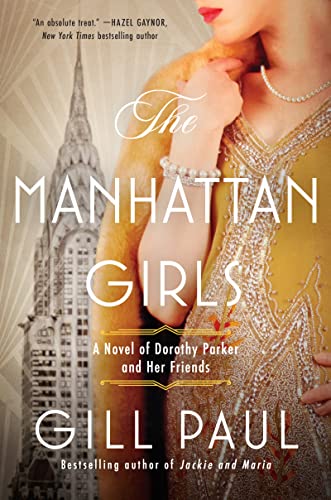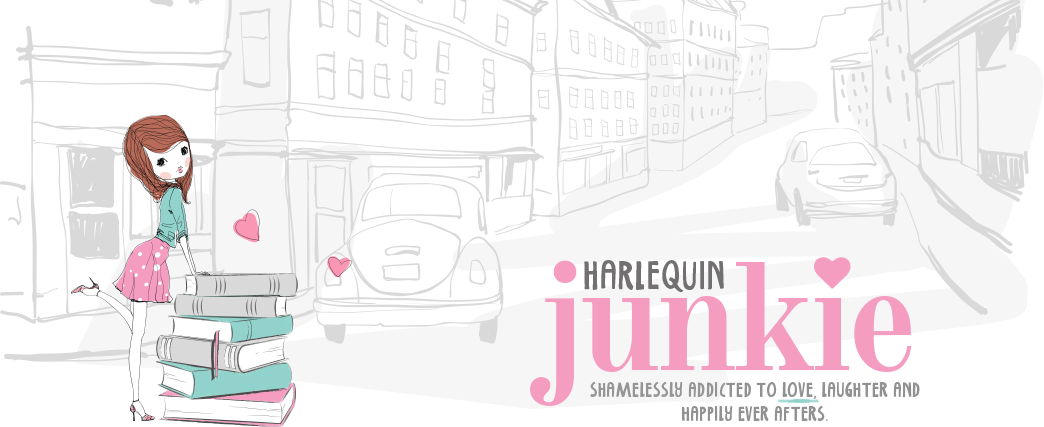Today, HJ is pleased to share with you Gill Paul’s new release: The Manhattan Girls
It’s a 1920s version of Sex and the City, as Dorothy Parker—one of the wittiest women who ever wielded a pen—and her three friends navigate life, love, and careers in New York City.

Dorothy Parker: renowned wit, member of the Algonquin Round Table, and more fragile than she seems. Jane Grant: first female reporter for the New York Times, and determined to launch a new magazine she calls The New Yorker. Winifred Lenihan: beautiful and talented Broadway actress, a casting-couch target. And Peggy Leech: magazine assistant by day, brilliant novelist by night.
Their romances flourish and falter while their goals sometimes seem impossible to reach and their friendship deepens against the backdrop of turbulent New York City, where new speakeasies open and close, jazz music flows through the air, and bathtub gin fills their glasses.
They gossip, they comfort each other, and they offer support through the setbacks. But their biggest challenge is keeping their dear friend Dottie safe from herself.
In this brilliant new novel from the bestselling and acclaimed author of Jackie and Maria and The Secret Wife, readers will fall right into Jazz Age New York and into the inner lives of these groundbreaking, influential women.
Enjoy an exclusive excerpt from The Manhattan Girls
Chapter 1
Jane Grant squeezed into a wooden Bell Telephone cubicle in the lobby of the Algonquin Hotel, took her reporter’s notebook from her worn leather satchel, and dialed the number of the New York Times copy desk. While she was waiting for the switchboard to put her through, she took off her hat and smoothed back some wayward strands of brown hair, then lit a Lucky Strike, screwing her eyes against the smoke.
“I’ve got a story for tomorrow, page two,” she said when someone answered.
“Ready for you,” a young man’s voice replied.
Jane began: “Ruth Hale, founder of women’s rights organization the Lucy Stone League—”
“Is that H-a-i-l?” the voice interrupted.
She tutted with exasperation. “Don’t you read the news? She’s a well-known journalist.”
“Never heard of her,” he said.
“H-a-l-e,” she spelled out, then continued, “has won an important legal victory by getting a real estate deed issued in her maiden name rather than her married name.”
“What’s her married name? Should I put that in?”
“Lord, give me strength!” Jane exclaimed. “The whole point of the Lucy Stone League is to campaign against women being forced to take their husbands’ names.”
“Why don’t they want to?” He sounded puzzled.
“How long have you been on the job?” The standard of copy-takers at the paper was haphazard but she had never come across one quite as clueless.
“It’s my first week. Second day, in fact.” He sounded proud.
“Did no one test your general knowledge at the interview?”
“I didn’t have an interview,” he said. “My uncle got me the job. He’s a chief sub.”
“Figures.” Jane tapped a column of ash into an amber glass ashtray with the hotel’s logo on the bottom. “Well, if you want to make it to your third day, you’d better sharpen up. Savvy?”
The blatant nepotism made her cross. She’d had little help as she clawed her way up to become the first female reporter in the paper’s history. Nothing about it had been easy; she’d gotten there by bringing in more stories and working longer hours than anyone else. Her male colleagues were still disparaging, calling her “Fluff,” but at least she got sent out on proper news now and wasn’t just covering society balls and the new season’s hemline.
She dictated the rest of her story to the youngster on the other end, telling him he was “dumb as they come” when he said he hadn’t realized the Nineteenth Amendment gave women the vote. She stubbed out her cigarette with gusto at the end.
After hanging up, she walked through to the hotel’s Rose Room. It was empty, apart from a group of her friends spilling messily out of a booth at one end, as if the room had been tipped on its side and they’d tumbled in a heap. Their chairs were encroaching into the passage to the kitchen so waiters had to squeeze past, balancing trays on their shoulders, as they set tables for dinner.
At one end of the booth Harold Ross, her husband of not quite a year, was sitting with their friend Alec Woollcott, the New York Times drama critic. She stopped to plant a kiss on Harold’s gnarled forehead, and listened to a snatch of their conversation.
“You’ve got the wrong idea about thanatopsis,” Harold said. “It’s from the Greek ‘thanatos,’ meaning death, and ‘opsis,’ meaning view. It’s not a wish for death but a meditation on it.”
“Ah, but you’re forgetting . . .” Alec began, and Jane stepped back. The pair of them loved their long-winded highbrow debates, in which neither would back down, and she preferred to steer clear.
At the other end of the table, Dorothy Parker beckoned and moved up to make space for her on a banquette, so she squeezed through the crowd and shuffled in.
Dottie was resplendent in a green spring hat and black feather boa, smothered in her customary cloud of chypre perfume, a mossy, woody scent that always reminded Jane of embalming fluid in an undertaker’s parlor. Jane never wore scent and dressed in practical clothes without any fripperies, but that didn’t stop her from admiring Dottie’s style.
“They’re starting a Saturday night poker club for men,” Dottie told her, gesturing towards Harold and Alec. “I should get Eddie to join. Maybe they would teach him how to flush.” She flicked her feather boa over her shoulder, hitting the face of a man Jane didn’t recognize, who batted it away with a snicker. Dottie often made her husband Eddie the butt of jokes; it was no wonder he chose not to socialize with their crowd.
Jane felt a pang of worry about the poker club. Harold loved poker but he was terrible at it. She’d met him at a poker game in Paris in 1918, when she was a volunteer for the YMCA and he was managing editor of the US Armed Forces’ newspaper, Stars and Stripes. He’d thrown that game because he lost concentration when he started flirting with her, and he’d had bad luck at cards ever since.
“Harold will lose his shirt again,” she said out loud.
“And no one wants to see that,” Dottie murmured.
She was forever sniping about Harold’s lack of physical charms, but Jane ignored her. It was just Dottie being Dottie. Someone passed her a hip flask and she sniffed the contents before pouring an inch into a glass. She guessed from the amber color it was whiskey, although you’d never have known from the taste or smell. The Algonquin hadn’t served alcohol since Prohibition became law the previous year, but the staff turned a blind eye if you brought your own.
There was a cheer from the other end of the table, and Alec stood and tapped the rim of his glass with a spoon to demand silence. He had taken his jacket off and Jane was reminded of Dottie’s cruel but accurate description of his figure: “Like a beer barrel on stumps.”
“A decision has been reached. Henceforth, the Saturday night poker club will be called the Thanatopsis Pleasure and Literary Club, and it will take place at an upstairs room of this establishment, courtesy of the long-suffering management.”
Jane rolled her eyes at Dottie, mocking the pomposity of the announcement. Typical Alec!
“Can we girls come and watch?” called an ingénue she hadn’t seen before, who was wearing something that looked more like a peach satin negligee than a day dress.
“Men only,” Alec replied. “Women ruin poker. They can’t control their emotions.”
Winifred Lenihan, the Broadway actress, was sitting opposite Jane and Dottie. “Gee!” she commented. “I thought that’s what I did every night when I walked out on stage.”
Alec raised his glass to her. “You’re the exception, my dear, but you still can’t join our game.”
“Why don’t we start our own Saturday night club, just for girls?” Jane suggested. “I fancy learning bridge. How about you, Dottie?”
Dottie shrugged: “Why not? So long as you have low stakes for the unemployed.” She had lost her job the previous year and was still sore about it.
“I was in the bridge club at Vassar,” said Peggy Leech, a bookish friend of theirs who worked for Condé Nast. “I’d be happy to teach you.”
“I play a little,” Winifred chipped in quickly. “Can I join you?”
“That’s a four then,” Jane said. She hardly knew Winifred, but she would make up the numbers. “Shall we take turns to host? I don’t want to be here at the Gonk, with the poker club upstairs. Speakeasies are too noisy and coffee shops are too dry.”
“Fine by me. I’ll host the first,” Dottie offered. “Next Saturday?”
“Are you sure Eddie won’t mind?” Jane asked. “He might not approve of his home being invaded.”
“Mind? Are you kidding?” Dottie said. “With Winifred Lenihan in his parlor, he’ll surely lose his mind . . . which would be no bad thing, come to think of it.”
Winifred smiled politely. She was beautiful, Jane thought, with gray-green eyes and bone structure like a Classical sculpture. She never felt jealous of good-looking women; to be so perfect must be a burden.
A stout woman in a beige check suit edged toward the table clutching a notebook and pen, her gaze fixed on Dottie.
“Pah-don me for interrupting, Mrs. Pah-ker,” she said, with the dropped r’s and long ah’s of a Boston accent. “I’ve been waiting all evening for a chance to ask for your autograph and now we have to leave to catch our train and . . .” She was flustered, her words speeding up as if she didn’t want to waste their time. “I would just never forgive myself if I missed the chance. I’m such a big fan of all those witty, clever things you say. I always read them in the papers.”
Before Dottie could reply, Alec Woollcott chipped in: “Are you sure you don’t want my autograph too? Anything remotely funny I’ve ever said has been attributed to Mrs. Parker.”
Dottie ignored him and took the book and pen, smiling sweetly. She scribbled her signature on a blank page and handed it back, saying, “Don’t believe what you read in the papers. These scoundrels are the types who write them.” She waved a hand vaguely in Alec’s direction.
The woman muttered her thanks, almost knocking over a chair as she backed away, and for a moment Jane thought she was going to bow, as if to royalty.
Dottie turned to Alec: “Don’t you know, dear, that attribution is the sincerest form of flattery?”
“Is Mrs. Parker being nice?” he replied. “I’d have thought you would disapprove of flattery.”
“A little is fine,” Dottie said. “So long as you don’t swallow.”
Excerpt. ©Gill Paul. Posted by arrangement with the publisher. All rights reserved.
Giveaway: A print copy of The Manhattan Girls by Gill Paul
To enter Giveaway: Please complete the Rafflecopter form and post a comment to this Q: What did you think of the excerpt spotlighted here? Leave a comment with your thoughts on the book…
Meet the Author:
Gill Paul has written eleven historical novels, many of them re-evaluating real 20th-century women and trying to get inside their heads. Her books have reached the top of the USA Today, Toronto Globe & Mail, and UK Kindle charts, and have been translated into twenty-one languages.
Gill was born and raised in Scotland, apart from an eventful year at school in the US when she was ten. She worked as an editor in non-fiction publishing then as a ghostwriter for celebrities, before giving up the “day job” to write fiction full-time. She also writes short stories for magazines and speaks at literary festivals about subjects ranging from the British royal family to the Romanovs.
Gill swims year-round in an open-air pond—“It’s good for you so long as it doesn’t kill you”—and loves travelling whenever and wherever she can.


EC
It feels like it’s suited for the book’s time period. Thanks for the excerpt, HJ!
Barbara Bates
Excellent excerpt.
Ellen C.
I enjoyed the excerpt.
Mary Preston
A fabulous era for friends to blossom. I look forward to more.
Debra Guyette
I enjoyed the excerpt. thanks
Lori R
Sounds interesting!
hartfiction
Lovely cover. Sounds good.
Amy Donahue
I love historical fiction and am interested in the roaring twenties so this sounds excellent.
Glenda M
I enjoyed the excerpt and want to read this book!
Amy R
Sounds good
Daniel M
looks interesting
Texas Book Lover
Sounds wonderful!
Summer
Loved that Dorothy Parker was in it, really looking forward to reading something set in that time period.
Mary C
Enjoyed the excerpt
Lori Byrd
Sounds really great
Dianne Casey
I really enjoy reading historical fiction and I liked the excerpt from the book. Looking forward to reading the book.
Bonnie
What an interesting book! Great excerpt. I’d love to read more.
bn100
interesting
Teresa Williams
Sounds wonderful.
Shannon Capelle
Sounds like a fascinating story
Patricia B.
It was an interesting peak into that section of society during the 20’s. Society and the rules were different but some things still much the same as today.